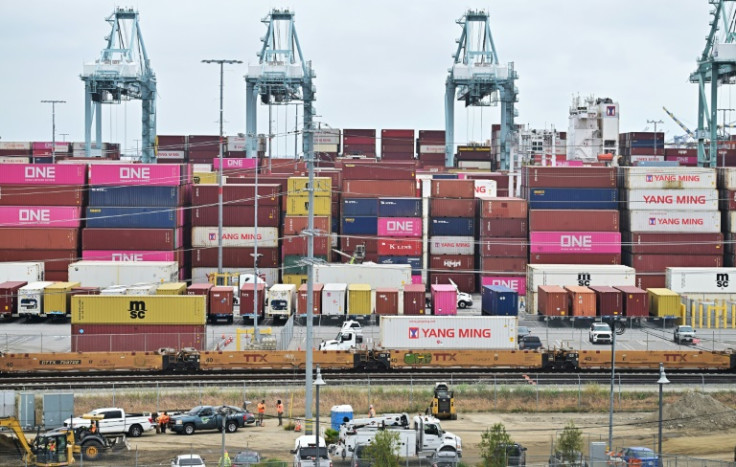G7 Finance Leaders Gather With Ukraine, Tariff Concerns At Fore

Top finance leaders from the G7 nations gather in Canada starting Tuesday, with concerns including war in Ukraine at the fore while the advanced economies grapple with fallout from US President Donald Trump's sweeping tariffs.
In talks running through Thursday, leaders are set to discuss global economic conditions, with participants seeking a common position on Ukraine, while issues like non-market practices are also on the agenda.
The talks come amid an uncertain approach among the G7 democracies towards the war in Ukraine -- after Russia's invasion in 2022 -- since Trump returned to the presidency this year.
Ukrainian Finance Minister Sergii Marchenko will be present as well at the meeting of Group of Seven finance ministers and central bank governors in Canada's western province of Alberta. He is due to take media questions Tuesday.
Once broadly unified, the G7 -- Britain, Canada, France, Germany, Italy, Japan and the United States -- has been rattled by Trump, who has reached out to Russia and slapped tariffs on both allies and competitors.
Economists have warned that tariffs could fuel inflation and weigh on growth.
The effects of US trade policy on economic stability will loom over Treasury Secretary Scott Bessent's talks with counterparts.
A US Treasury spokesperson said Bessent seeks to get the grouping "back to basics and focused on addressing imbalances and non-market practices," including in non-G7 countries.
A source briefed on US participation expects China's excess industrial capacity to be discussed, with G7 members generally sharing concerns on the issue.
A Japanese official told AFP the delegation is arranging for a meeting with Bessent this week, seeking to speak on topics like foreign exchange.
While the grouping discusses policies and solutions to issues like trade, security and climate change, analysts warn of unpredictability as leaders deal with internal tensions.
The Banff, Alberta gathering will be "a test or signal of the G7's ability or inability to agree on a final statement," a French finance ministry official told reporters Tuesday ahead of talks.
While Canada's presidency hopes to issue a communique, such an outcome must reflect "a shared understanding of the global economic situation and common goals in addressing the challenges outlined in the statement, the official said.
"We will not be able to accept language that is completely watered down."
The source briefed on US participation said Washington is not inclined to "do a communique just for the sake of doing a communique," adding that a consensus will have to align with Trump administration priorities too.
Carl Weinberg, chief economist at research group High Frequency Economics, called the talks a "litmus test" on how a leaders' summit in June will go.
For now, German Finance Minister Lars Klingbeil warned Tuesday that trade disputes with the United States should be resolved as soon as possible.
In comments before meeting his counterparts, Klingbeil said tariffs and uncertainties are a burden on the economy and job security.
Trump has slapped a blanket 10 percent tariff on most US trading partners, threatening higher rates on economies including the European Union.
He also imposed tariffs on imports of steel, aluminum and other goods, raising the temperature with G7 countries.
"A possible metric for success is that the US wants to engage and negotiate a trade deal with these countries," said Ananya Kumar, a deputy director at the Atlantic Council, a Washington-based think tank.
Officials told AFP they are not expecting trade agreements to be unveiled this week, but maintain the gathering is another chance to find common ground.
Trying to move forward on trade will help with progress on other issues, said Kumar, who expects members to also seek "commitment towards the status quo with Ukraine."
The issue of sanctions on Russia remains uncertain.
Trump said Russia and Ukraine would start peace talks after he spoke Monday with Russian President Vladimir Putin, while the EU on Tuesday formally adopted a new round of sanctions on Russia, targeting its "shadow fleet" of oil tankers.
A source briefed on US participation in this week's summit maintained that all options remain regarding sanctions.
But they stressed sanctions are aimed at achieving foreign policy results such as ending the war -- a Trump administration priority.

© Copyright AFP 2025. All rights reserved.




















